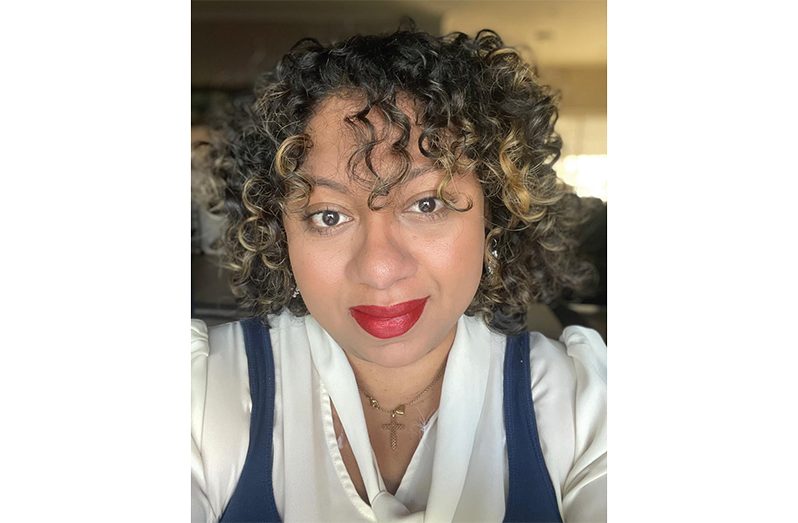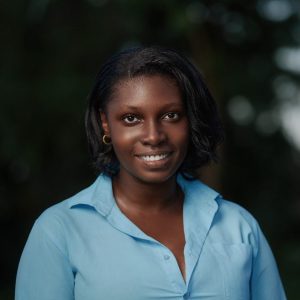A collection of the Caribbean’s Folklore
CARIBBEAN folklore transcends mere storytelling. Tales of mythical creatures on dark nights have spread throughout the region, creating a common thread among countries that share much more than just stories. Although many of these legends exist throughout the Caribbean, collections of such tales are rare. That’s why the book ‘One Day Congotay’ has been gaining much traction. The anthology features Caribbean folklore from seven writers: Latoya Wakefield (Jamaica), Rianne Garvin (Trinidad and Tobago), Tyler Mahadeo (Trinidad and Tobago), Tamia Lashley (Guyana), Cosmata Lindie (Guyana), Gabrielle Mohamed (Guyana), and Marsha Gomes-McKie (Trinidad and Tobago). Slated to see its launch on October 17, ‘One Day Congotay’ is bound to make some waves and ignite imaginations in the Caribbean and beyond.
The Pepperpot Magazine sat down with one of Guyana’s writers, Gabrielle Mohamed, who takes an intriguing and spooky approach with her story called “The Blood Doctor” (or “De Blood Dactah” as titled in the book). Her inspiration, she says, comes from her homeland, Guyana. Born and raised in the capital city of Georgetown, Gabrielle spent much of her childhood between Bartica and Corentyne, where her parents are from. “I am a product of Georgetown, but my soul is in the rivers of Bartica, and my tongue is in the leaves of Berbice,” she says. This connection deeply influenced her contribution to the book: “I like to refer to myself as the daughter of the Red Mother. And the Red Mother is my personified version of our landscape.”
Her time shared between the counties of Guyana gave Gabrielle a unique perspective that is evident in all of her works. “I have many core memories, just going to the river with my grandfather, waiting for the snake to come out of the water,” she reflects. She further adds, “As soon as you cross the river, or you come back from Berbice, the spell is broken, and that sense of harmony between brother and sister, from various religions, and people of varying colours, that kind of humanity and unity is broken.”
A lifelong, passionate writer, Gabrielle is also a poet and playwright. Her work “Spirits of the Mountain Crest” was staged at the National Culture Centre a few years ago. Since then, she has made significant strides in her career, with several notable publications. ‘One Day Congotay’ remains unique in its portrayal of difficult themes and use of Guyanese Creole. “I want to create something entirely new. Using Guyanese Creole English is so important to me because when you break it down, there are references to different cultures existing in a sentence to derive meaning.”
Gabrielle’s story, tackles harsh themes like issues facing women. “My particular piece focused on violence against women. I felt like when the judiciary system fails our women, we need to do something. And this, for me, is where the land comes alive,” she explains. “My story utilises our landscape; it is reflective of all the survivors who are still being haunted by the trauma of the beatings they would have received.”
She chose this theme because of her ability to relate to it and the complexities it encompasses. “I’m very womanistic, not feministic, womanistic. Because feminism doesn’t speak to the reality of being coloured and a woman at the same time.” Writing the story was an intricate and delicate process: “Once I have that title, ‘The Blood Doctor,’ I am able to create a very detailed skeleton of the story and add my organs and the tissues and the tendons and the blood and the arteries.”
Gabrielle is proud of her Caribbean heritage and identity and ensures that they are showcased in her work. Moreover, she ensures that her story is not only engaging but captivating to readers with strong human interest aspects. “I made a very conscious decision to choose a humanistic approach with folklore and supernatural tenets inside to build this working body of art.”
Sharing more about her story, Gabrielle hopes readers will learn about Caribbean folklore as well as the real challenges women face. “In my story, ‘The Blood Doctor,’ Mother Epione in Greek mythology refers to the goddess of soothing pain. And she is able to create this concoction, this virus, essentially, that’s going to transform my protagonist Gina.”
Still considering herself a budding writer, Gabrielle advises that all writers and artists, regardless of their medium, should keep moving forward and understand that rejection is just part of the creative process. “It won’t be your first rejection. It’s not going to be your last. You can be the most established ‘writer’ out there, and they’re still going to say no to you.” She further urges them to find people who are interested and intrigued by the work, and although it may seem difficult, the Caribbean is full of passionate creatives. “Just because one person said no doesn’t mean the world will say no. There’s an entire community of writers and creative thinkers out there. You just need to find the right people.”











